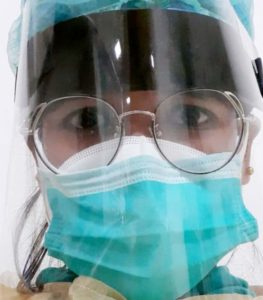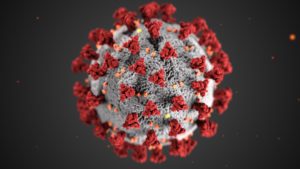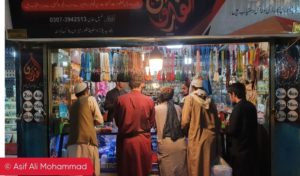
The Government of Pakistan provided COVID-19 relief funds to the low-income groups, however, a sizeable share of religious minorities was ignored in this drive. Almost all of the Hindu community in Jogi Mor is excluded from the record in the national database as they do not have CNICs.
Without a national identity card, they could not register for the relief package offered during the pandemic.
Even 74 years after independence there is a community in Pakistan that can not claim a documented national identity, due to the lapses in the system.
The COVID-19 dramatically affected the socio-economic landscape of Pakistan. In order to control the spread of the virus the Government announced a lockdown. The shutdown caused unemployment for a massive majority of the workers in all sectors, especially the informal sector.
Multiple food drives and financial aid programs were launched by the civil society organizations and social activists. The Government of Pakistan also initiated COVID-19 Relief funds for the vulnerable groups, but the criteria for eligibility of all these initiatives was their registration in the National database of Pakistan through CNICs. These cards serve as an identification document, by assigning a unique number to authenticate citizens’ national identities. This condition had put residents of Jogi Mor at a great disadvantage.
Jogi Morr is inhabited by Hindus, and being a religious minority they face a degree of marginalization which only deepens when they are to live without CNICs. Since decades their community has to face a plethora of obstacles for not having a basic document that proves their national identity.
Ravi Kumar Chohan, 65, a local resident and member of Pakistan Hindu Seva (Welfare Trust) stated that he has been living in the locality since he was born but couldn’t see any progress or development in the area. While conducting interviews I found that only 10% of the population possesses CNICs. Others who applied for the cards could not get them, as NADRA demands a record of their ancestors’ which they are unable produce.
The Prime Minister of Pakistan initiated several campaigns to support the poor families during COVID-19, providing an amount of around PKR12000 per household. Unfortunately, a majority of the Jogi Morr residents turned out to be ineligible for this financial aid. Most of the community members are daily wage earners, who used to make PKR200-300 per day and could really use the money but there was no way they could be considered for it without Identity cards.

On the other hand, the assistance provided by several NGOs and civil society schemes also remained inaccessible as the condition of providing CNIC applied to each program. Having lost their jobs and all opportunities to avail any financial aid, the Hindu community was in despair. The community suffered a critical shortage of food and clean and safe drinking water as well, severe health and hygiene issues added to the misery of the locality.
“Our children are unable to continue in schools because they did not have birth registration certificates”A member of the Hindu community living at Jogi Morr, Karachi.SHARE13TWEET
While speaking to NADRA’s representative, Javed, I was told that the residents of Jogi Morr have collectively written an application to NADRA explaining the whole scenario and requesting the authority to issue CNICs. “NADRA’s administration will send a Mobile Van and their IDs will be prepared after a quick verification”, he said. As per residents, there are about 1800 households in the community and almost all of them lack the right to vote.
“Our children are unable to continue in schools because they did not have birth registration certificates” a community respondent informs. Sunita, 36, a resident of Mohalla JinaDas Maharaj, wanted to get enrolled in a school but was denied admission by the school’s administration as her parents did not have CNICs. Other than JinaDas Maharaj, there are two other Hindu localities in the neighbourhood, known as Laalu Marwari Goth and Maghoo Mohalla, but the number of schools is very limited.
“To our dismay, even the Government hospitals do not treat Hindu patients because it is believed that a part of Zakat funds cannot be spent on non-Muslims”.Bhandari Mahraj – Head of Hanuman Temple (Welfare Trust)SHARE13TWEET
“The problems of earning a livelihood escalated because none of the Government representatives ever bothered to visit us since 2008”, said Bhandari Mahraj, Head of Hanuman Temple (Welfare Trust). During an ongoing operation in Karachi, the security situation demands proper credentials as our movement has been further restricted.

“To our dismay, even the Government hospitals do not treat Hindu patients because it is believed that a part of Zakat funds cannot be spent on non-Muslims”, he adds.
Members of the community lamented the fact that repeated visits to Nadra offices had not only added the cost of fare but to fortitude too, and all in vain. “It’s like we’re going round in circles. People with CNICs are told to get marriage certificates in order to get official documents ready for their wives and children. But where is the law that grants permits to Hindu Marriages?” asked Ashi, a mother of four, residing in the Jogi Morr locality.
Shockingly, a representation of these issues has not found its way to the provincial assembly either. A few international newsgroups have attempted to give it coverage but the situation on the ground has not improved at all.
Original content published in partnership with CREID by Ravadar



